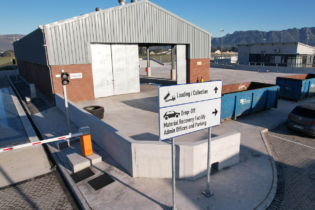Inferences that delaying the implementation of e-tolling will cause harm by reducing funding to social programmes is “emotional blackmail”, says the Opposition to Urban Tolling Alliance (OUTA).
It rejects media reports of this idea and says the suggestion is not a reflection of reality. “If the authorities were so pressed for funding, treasury had many opportunities to apply an interim fuel levy to fund Sanral’s [SA National Roads Agency’s] R270 million per month debt obligations to the GFIP [Gauteng Freeway Improvement Project] creditors, pending the outcome of the legal case. “Quite frankly, had a fuel levy increase of around 10c/litre been applied back in 2008, when the GFIP upgrade began, the investment would be a long way down the road of being reimbursed.”No progress
The alliance adds that engagements between stakeholders and the inter-ministerial committee (IMC) on e-tolling need to result in action of some sort. The committee, set up by Cabinet to address issues with the GFIP and e-tolling, has since last month been meeting stakeholders to discuss the matter. “Following months of talks by the IMC with various stakeholders, OUTA is concerned that while initial indications were promising, several weeks have now passed without any positive progress towards a solution,” says Wayne Duvenage, OUTA chairperson. Government unmoved
The association adds that in order to meet Sanral’s immediate funding requirements and avoid appropriating monies from various government departments, all stakeholders at the IMC meeting on 19 July strongly motivated for the implementation of an additional amount on the national fuel levy to fund both GFIP and other national road infrastructure projects. “Despite this funding option being the least expensive and more efficient than the e-toll collection process, National Treasury remains unmoved. It is hoped that subsequent IMC meetings will seriously explore the rationality of the fuel levy, even as an interim solution.” OUTA also says it is concerned that the Congress of South African Trade Unions (Cosatu) is not included in the combined broad-based stakeholder group that is currently engaging with the IMC. “It is important that all relevant parties meet in one forum and avoid a parallel process, which might well delay any agreement.”
Cosatu met with the committee on Friday, as part of a separate engagement process.
Interdict asideOUTA, on 17 July, filed its supplementary affidavit for part B of the case against e-tolling, after reviewing numerous documents and records supplied by Sanral and the Department of Transport. It explains that this is the next step in the full review of the matter in the High Court. “It is imperative that this process gets under way, irrespective of the Constitutional Court appeal to set aside the interdict, as this is the heart of the matter,” says Duvenage. The North Gauteng High Court granted OUTA’s application for an interdict against the implementation of e-tolling until a full judicial review is carried out. No threat
“To date, the review of the records supplied by the government has not revealed anything that may hinder OUTA’s challenge,” says the alliance. Duvenage adds that of serious concern is the fact that the decision to toll seriously lacked meaningful consultation and that it was rushed through under the guise of meeting World Cup deadlines. “Noting the lack of appropriate consultation, irregular approval of the various environmental impact assessments, and poor analysis regarding the cost of toll collection, OUTA claims the minister of transport in 2007 was unable to make an informed and rational decision regarding the implementation of GFIP e-tolling.” OUTA has raised over R5 million from all sections of business and citizens nationally to help foot the legal bill being incurred for fighting the e-toll case. The funding required to pay the entire bill is around R10.8 million.
Source: ITWeb






